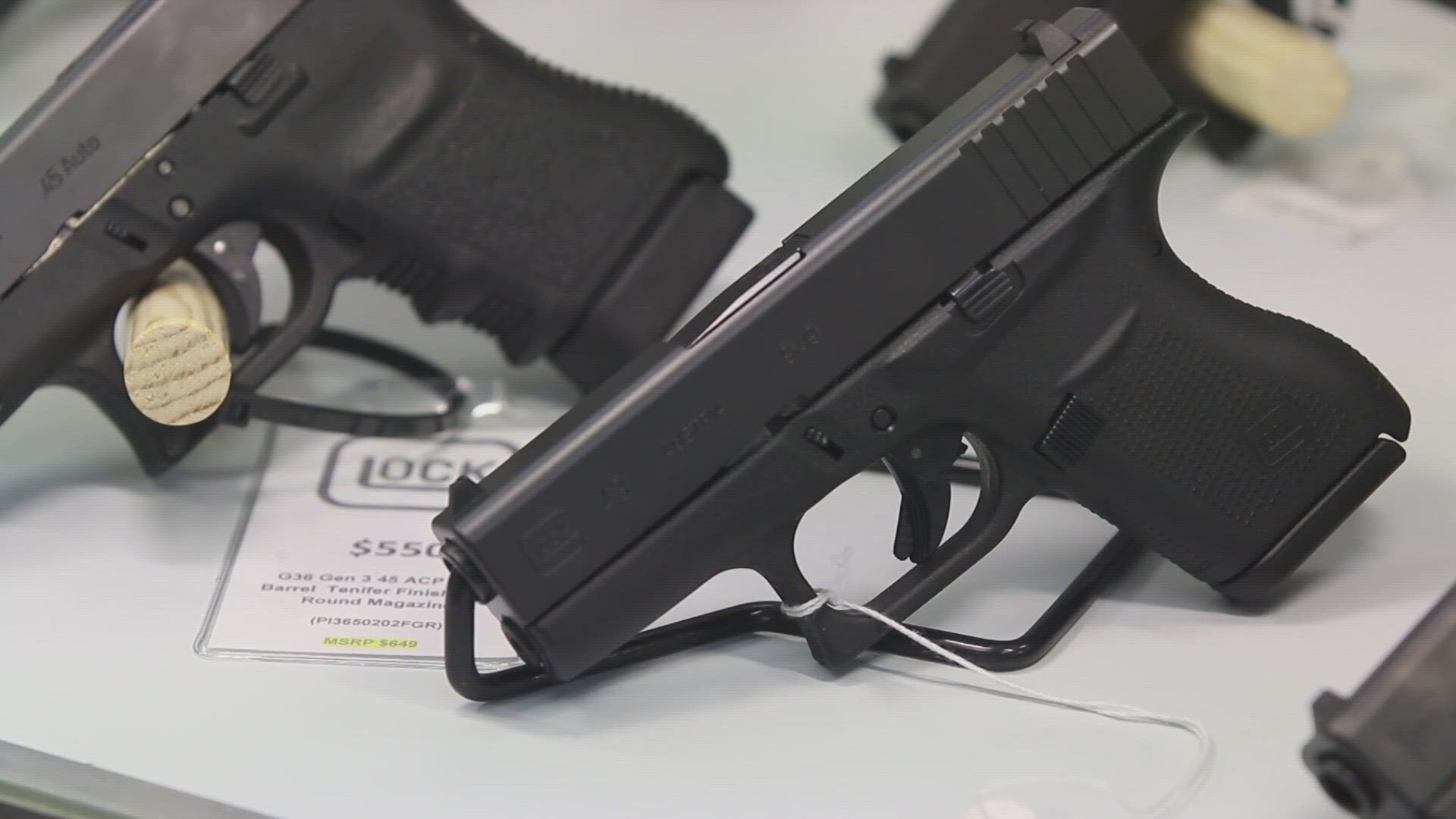NASHVILLE, Tenn. — Gov. Bill Lee on Friday wouldn't say whether his proposal to keep firearms away from dangerous people has enough support inside Tennessee's Republican-dominant Statehouse to survive the upcoming special legislative session.
In roughly three weeks, lawmakers are expected to be called back to Nashville to address possible changes to the state's gun laws, an effort that gained momentum after a shooter opened fire at a Nashville elementary school earlier this year and killed six people, including three 9-year-old children.
Yet even as traumatized families closely connected to the shooting have pleaded and lobbied for more restrictions on who can access guns, GOP lawmakers have appeared hesitant to adopt any pro-gun control proposals.
Back in May, Lee announced that he would call a special session after the Republican lawmakers initially refused to consider his proposal designed to keep guns away from people who could harm themselves or others.
Since then, the Republican governor said Friday that he's met with “hundreds of people” to go over not only his proposal but also others on mental health, violent crime and juvenile justice that will also be considered during the special session. His office has also received thousands of public comments largely in support of passing some sort of gun control legislation.
“I'm really encouraged by the efforts of General Assembly members that are bringing ideas forward to make sure that this is a very productive session that leaves Tennessee safer,” Lee said.
However, Lee wouldn't say whether he had the votes to get his own proposal past the Republican supermajority and wouldn't answer who would be sponsoring his legislation.
“You know, whenever you bring a piece of legislation, you certainly hope that it does (pass)," Lee said. “But that’s up to the General Assembly.”
Lee has mounted a campaign for “temporary mental health orders of protection” and has maintained that it is not a so-called red flag law, which he has described as a “toxic political label.”
To date, 19 states have red flag laws on the books — with many lawmakers enacting them after tragedies. Notably, Florida did so after the 2018 mass shooting at Marjory Stoneman Douglas High School in Parkland that killed 17 students. Law enforcement officials had received numerous complaints about the 19-year-old gunman’s threatening statements.
In allowing courts to issue what are known as extreme risk protection orders, the laws are intended to temporarily remove guns — usually for up to a year — from people showing signs of potentially violent behavior. In many cases, family members or law enforcement must petition a court for an order.
An AP-NORC poll in last year found 78% of U.S. adults strongly or somewhat favor red flag laws, but the backlash against them has been intense in some states, particularly in rural areas.
Under Lee’s proposal, law enforcement would first determine if a person is a threat, then a hearing with the person in question would be held, generally within three to five days. A judge would rule whether they should indeed have their weapons taken away temporarily. If so, the person would have to surrender their guns and ammunition to a third party within two days and any handgun carry license would be suspended within three business days. The actions would last up to 180 days at a time.

